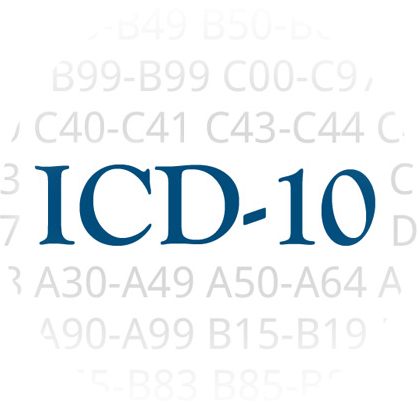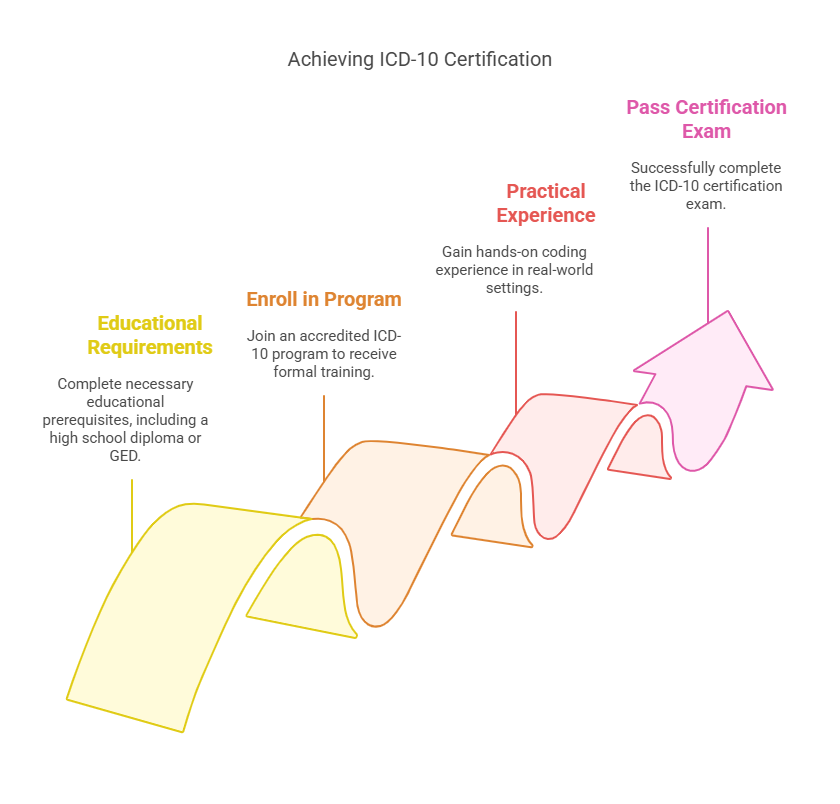How Long Does It Take To Get ICD 10 Certification
The timeline for obtaining ICD-10 certification typically ranges from 6 months to 3 years, depending on factors such as the type of educational program, learning pace, and study dedication. Some intensive programs offer fast-track options, while others allow self-paced learning. Understanding these aspects can help aspiring medical coders plan their certification journey effectively.
What is ICD-10 and Why is It Important?
The International Classification of Diseases, 10th Revision (ICD-10) is a standardized system used globally to code medical diagnoses and procedures. With over 70,000 codes, it enables accurate medical documentation, billing, and insurance claims processing. Mastery of ICD-10 is essential for medical billers and coders, ensuring compliance with healthcare regulations and preventing claim rejections.
Certified professionals in medical billing and coding certifications, such as those accredited by AMBCI, play a critical role in healthcare facilities by accurately coding patient diagnoses and treatments. This ensures that healthcare providers receive correct reimbursements and that insurance claims are processed without errors. Additionally, incorrect coding can lead to financial losses, legal issues, and poor patient record management.
Steps to Achieve ICD-10 Certification
1. Meet Educational Requirements
Before enrolling in an ICD-10 certification program, individuals must have at least a high school diploma or GED. Some programs may require additional coursework in subjects like biology, medical terminology, and anatomy to ensure students have a solid foundation in medical coding.
2. Enroll in an Accredited ICD-10 Program
Several institutions, including AHIMA (American Health Information Management Association) and AAPC (American Academy of Professional Coders), offer ICD-10 training and certification exams. These programs vary in length, with some offering accelerated courses that can be completed in as little as six months.
3. Gain Practical Coding Experience
Many certification programs require hands-on training in real-world medical coding scenarios. Practical experience helps candidates develop proficiency in ICD-10 guidelines, coding software, and regulatory compliance.
4. Pass the ICD-10 Certification Exam
The final step is taking and passing the ICD-10 certification exam. The exam includes multiple-choice questions and coding exercises that assess a candidate’s understanding of diagnosis coding, procedural coding, and healthcare compliance regulations.
Importance of ICD-10 Certification in Medical Coding
ICD-10 certification enhances career prospects in the medical billing and coding industry, allowing professionals to work in hospitals, clinics, insurance companies, and healthcare administration. Additionally, maintaining certification requires continuing education (CEUs) to stay updated with evolving medical coding standards.
Six Lesser-Known Facts About ICD-10 Certification
ICD-10 Has Subclassifications Beyond Basic Codes: Many professionals are unaware that ICD-10 includes extensions that specify details such as the cause of an injury, external circumstances, and location. For more information, you can visit ICD-10 Data.
The ICD System is Updated Annually: Every year, the World Health Organization (WHO) updates ICD codes to reflect new medical conditions, treatments, and classifications. You can read more on the WHO's official ICD updates page.
Some Employers Cover Certification Costs: Many healthcare employers offer tuition reimbursement programs to help employees obtain ICD-10 certification. Learn more about this on AMBci's website.
ICD-10 Has Been Replaced by ICD-11 Globally, But Not in the U.S. Yet: While many countries have transitioned to ICD-11 as of 2022, the United States still relies on ICD-10, with updates planned through 2025 and beyond. More details can be found on JAMA Network.
ICD-10 Includes Mental Health and Social Determinants of Health Codes: Unlike previous versions, ICD-10 features expanded codes for mental health disorders and social determinants of health (SDOH), allowing for more detailed patient care documentation. For more on this, visit AHA's paper.
Coding Errors Can Lead to Significant Financial Penalties: Incorrect ICD-10 coding can result in billing audits, claim denials, and even legal fines for healthcare providers. You can explore more about these penalties on MereM Health.
FAQs About ICD-10 Certification
-
The certification process can take anywhere from 6 months to 3 years, depending on the training program and individual learning pace.
-
While not always mandatory, ICD-10 certification significantly improves job prospects and salary potential in the medical billing and coding industry.
-
Certification costs range from $500 to $2,000, including course materials, exam fees, and training programs. Some employers offer financial assistance for certification.
-
Yes, many accredited institutions offer online ICD-10 training programs, allowing for flexible, self-paced learning.
-
Certified ICD-10 professionals can work as medical coders, billing specialists, health information technicians, compliance auditors, and insurance claims analysts in healthcare facilities.
Conclusion
ICD-10 certification is an essential credential for anyone pursuing a career in medical billing and coding. The process typically takes 6 months to 3 years, depending on the program and individual learning pace. Staying updated with industry regulations and continuing education is crucial for career advancement in this field.



